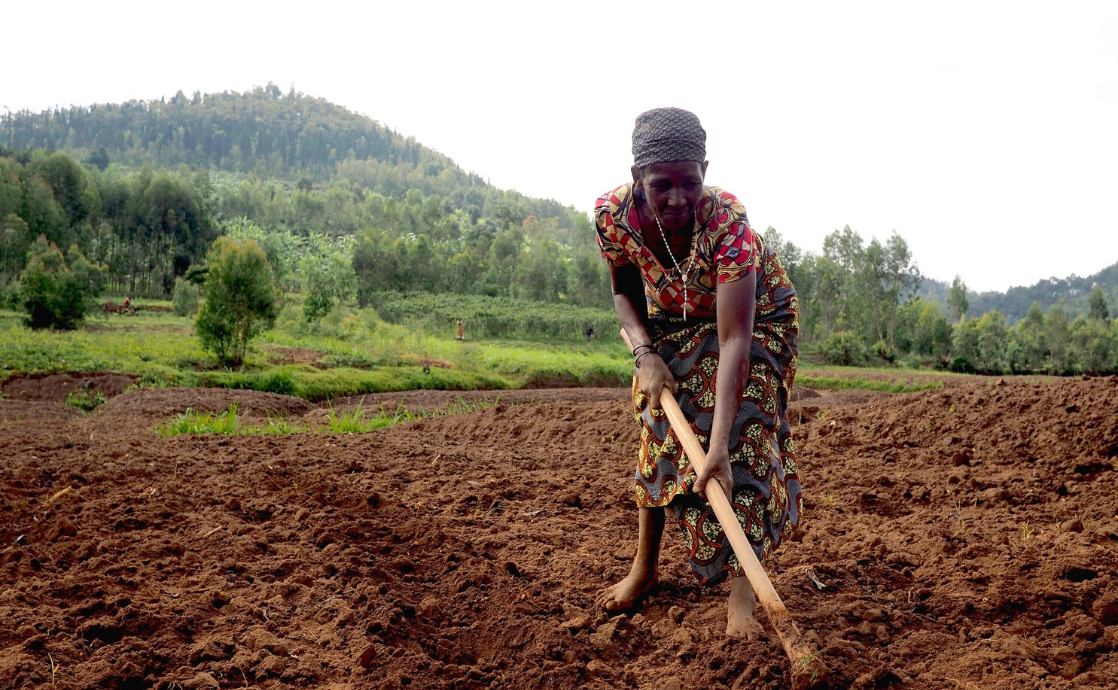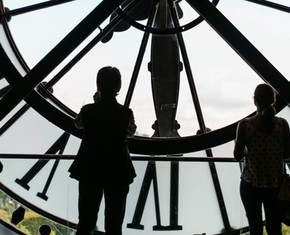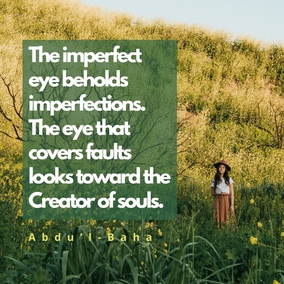The views expressed in our content reflect individual perspectives and do not represent the authoritative views of the Baha'i Faith.
Agriculture is not a topic that immediately leaps to mind in most discussions of the social principles embedded in the Baha’i Faith – but it should.
Baha’i values like the oneness of humanity, the abolition of racial, national, and gender prejudice, universal peace, and narrowing the income gap between the rich and poor generally get a lot of comment and consideration. As for the social and global importance of food production – well, that principle receives less attention.
Which is a bit unfortunate because, it turns out, Abdu’l-Baha had a keen interest in agriculture, regarding it as fundamental to progress and peace.
RELATED: The Farmer: the First Active Agent in Human Society
What sparked Abdu’l-Baha’s interest appears to have been the multiplier effect agriculture has on the economic well-being of all people. In a speech he gave in the United States in 1912, he said:
To solve this problem (of economics), we must begin with the farmer; there will we lay a foundation for system and order because the peasant class and the agricultural class exceed other classes in the importance of their service.
Abdu’l-Baha knew that, without food production, nothing else would be possible in society. That reality likely sparked his intense concern for agriculture and how it worked, what would make it more successful, and its deeper implications for society.
In fact, in one of his tablets included in the book Pearls of Bounty, he offered a detailed and lengthy explanation of how to set up a farming cooperative using a progressive taxation standard, and how important and influential such enterprises could be on a local level. Here’s a brief excerpt:
… it is fitting to begin with the farmer in matters related to economics for the farmer is the first active agent in human society. In brief, from among the wise men in every village a board should be set up and the affairs of that village should be under the control of that board. Likewise a general storehouse should be founded with the appointment of a secretary. At the time of the harvest, under the direction of that board, a certain percentage of the entire harvest should be appropriated for the storehouse.
A certain amount must be put aside from the general storehouse for the orphans of the village and a certain sum for the incapacitated. A certain amount must be provided from this storehouse for those who are needy and incapable of earning a livelihood, and a certain amount for the village’s system of education. And, a certain amount must be set aside for the administration of public health.
Abdu’l-Baha’s interest in agriculture was not limited to its communal impact on society in general, but was also personal. He devoted special and particular attention to a small Baha’i-run farming community located near Adasiyyah, Palestine, which is now an area of Jordan near that country’s border with Israel.
Under Abdu’l-Baha’s careful guidance over 20 years, the Baha’i farmers in that area turned what had been desolate desert scrub into productive farmlands, growing vegetables and cultivating fruit orchards.
For Abdu’l-Baha, the Baha’i farmstead of 920 hectares (roughly 2,273 acres), which he purchased in 1901, functioned as a kind of model farm and proving ground for the Baha’i principles regarding agriculture and its role in fostering a fair, just, and equitable rural community.
At Adasiyyah, Abdu’l-Baha was no absentee landlord. He paid four visits to the farmstead between 1914 and 1920, one time staying for a month, and kept in regular contact with the people who farmed the land he had purchased.
The Baha’is who worked this land were tenant farmers. Ordinarily, under this arrangement, called “sharecropping,” a farmer could expect to receive half of the income generated from the sale of any crops grown on the land. In practice, though, landlords often deducted the land taxes they paid, plus any interest on the principle they had loaned the farmers in order to buy seed, implements, fertilizer, and other expenses common to farming. As a result – if they were lucky – sharecropping farmers could count on maybe 25 to 30% of the total farm income as their payment, and they had to support themselves and their families on that money for the entire year.
Instead, Abdu’l-Baha instituted a system where the farmers who worked the land he owned got 80 per cent of the value of the crops harvested. The other 20 per cent they devoted to the construction and maintenance of the shrines of Baha’u’llah and the Bab.
RELATED: Smallholder Farmers and the Organic Principle of Interdependence
Abdu’l-Baha did not content himself with merely advising the farmers about which crops to grow – he actively encouraged them to introduce new plantings and successfully pioneered the idea of growing bananas, a first for the Middle East. He also urged the farmers to launch a series of rural community development programs, including starting schools, conducting special classes for children, and holding literacy classes for adults.
In time, the Adasiyyah farm area had its own democratically-elected Baha’i leadership body, called a Local Spiritual Assembly, formed in 1924. It developed a cemetery to bury its dead, and even built its own Baha’i center, which remained in the possession of the local Baha’is until 1974.
Abdu’l-Baha understood that once a successful agricultural project gets established in a rural area, it opens the way for other beneficial community development in the form of roads, the creation of local produce markets, crafts, rural financing, business, education, healthcare, and sanitation.
The Adasiyyah farm project proved so successful that, in time, the government of the Kingdom of Jordan touted it as a model of rural community development in the country.
After the state of Israel declared its independence in 1948, the circumstances that had allowed the farmers of Asadiyyih to sell their produce as far away as Haifa and even Damascus dramatically changed. Then in 1962, the government of Jordan expropriated much of the farmland in and around the Adasiyyih area as part of a national land redistribution plan.
Since the Baha’is working the area were tenant farmers, they could not purchase the land, which meant that the government sold off much of it to other farmers – but the project had been a success, and a pattern had been formed.
The amount of personal time and energy that Abdu’l-Baha devoted to his Adasiyyah farming project offers clear evidence of just how important he considered the role of agriculture in helping to create a Baha’i-centered rural society – and the wider influence a re-imagining of the role of the farmer could have on the world at large.
















Comments
Sign in or create an account
Continue with Googleor